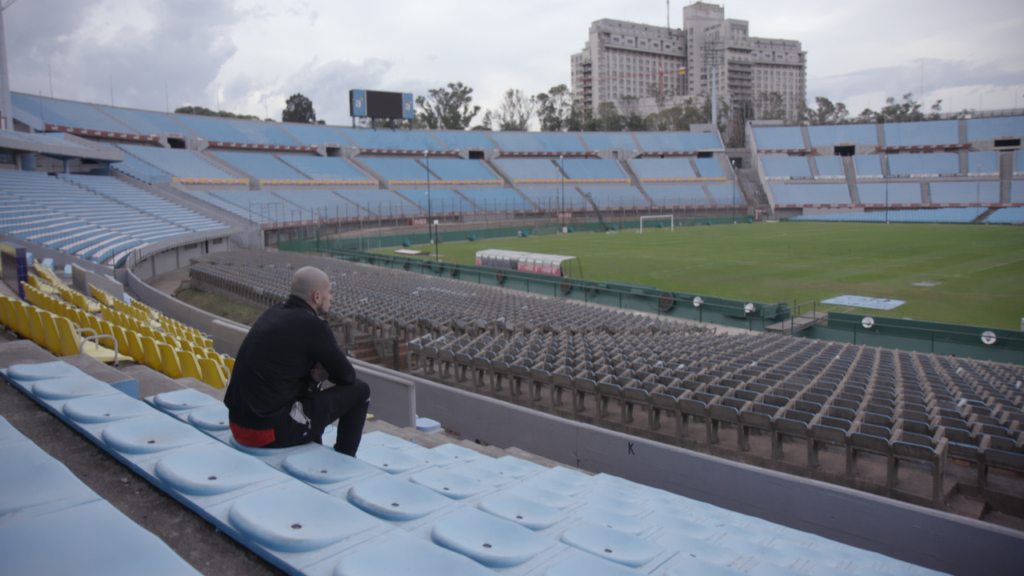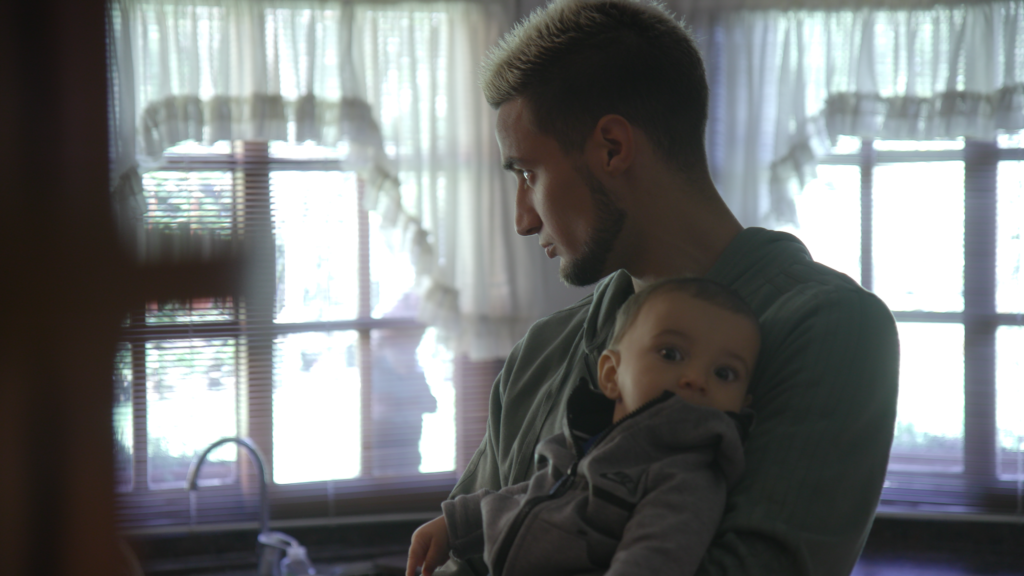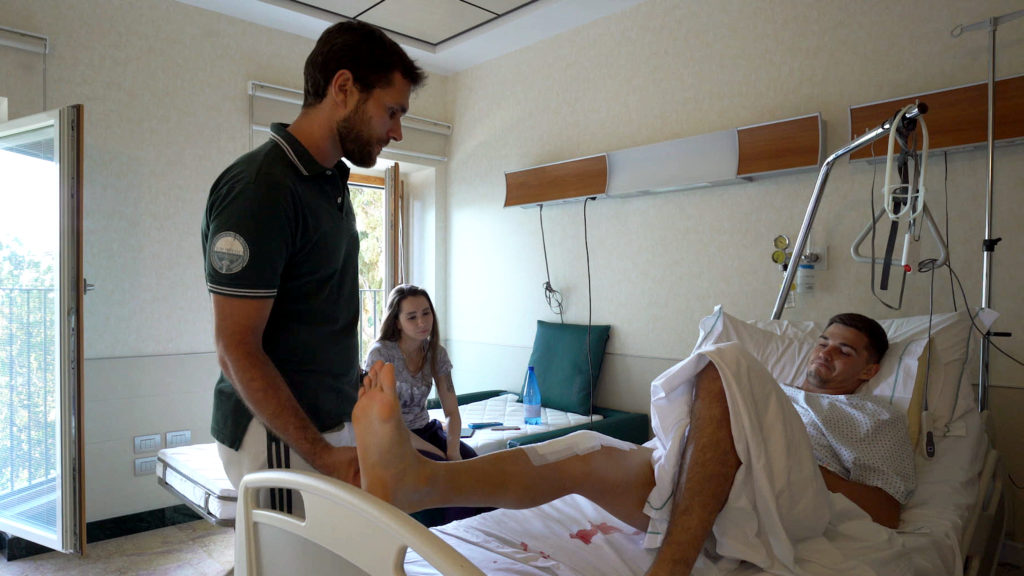A new documentary shows the human stories behind the soccer stars

Soccer stars are something of an alien concept to the everyday fan. The perception that the global superstars don’t care about their team’s supporters, and are only in it for fame and fortune, has created a rift between supporters and the talented athletes that they idolise. Arsenal playmaker Mesut Ozil and Manchester United forward Alexis Sanchez are but two examples who are routinely vilified over their wage packets and are perceived as indifferent, soulless machines who can’t feel emotions.
This couldn’t be further from the truth. Soccer stars feel pain and loss. They’re thrust into the public eye from an early age and deal with the pressures that comes with it. They sacrifice more than anyone could possibly imagine.
For Pascui Rivas, director of soccer documentary “Ordinary Gods,” it was these untold, human stories that he sought out from the offset.
“What people see from the outside is a really young guy with a lot of money,” Rivas said. “But because they’re young, in a way they’re children, and I try to bring that forward sometimes. That in itself can be hard as they’re very mature children, because they made the choices at age 11, 12 and 13 that everyone else makes at 19 or 20. By the time these guys are that age, they’re very focussed and they have experienced enough loss — and hopefully rebirth — that they can appreciate life and very simple things, and have clarity as to what’s important.”
“Ordinary Gods” followed six soccer players over a three-year period — leading up to the 2018 World Cup final — as they experienced the highs and lows of trying to make it at the top level. Far from capturing the rise of stars who would ultimately make it, however, Rivas opted to accompany a variety of individuals on their respective journeys.
From Lyon and France star Corentin Tolisso, who declined a transfer to Serie A side Napoli in order to win a trophy with his hometown club, to Roman Zobnin, who thought he may never play again after suffering a serious knee injury in June 2017, each player helped to tell a singular story based on the overall experience that all soccer players deal with on their personal voyages.
“The decision to use these six specific guys was that I wanted to use a number of players that would, in unison, create one single story that speaks of the entire experience of being a professional footballer,” Rivas revealed. “Each of these players is occupying a different aspect and shed light onto a different part of the experience. That arc is represented through all of these lives that tell one story.”
Gaining unrestricted access to players, at various points in their journeys, helped to shape the story that Rivas and his countless filming crews looked to portray. In contrast to the entourage that accompanied the likes of Zobnin and Tolisso, the one-woman crew who followed Senegalese international Alhassane Sylla offered a unique insight into perhaps the biggest struggle for any would-be international star — getting that all important transfer to Europe.
“Lovinsa Kavuma, who followed Sylla, was authentic as it was just her, the camera, and him,” Rivas said. “She got such precious, unique access with him that speaks a lot about that character, because his character was a diamond in the rough – he’s still in the making and was dreaming of making it. In contrast, Zobnin was followed by a full crew – helmed by
Russian filmmaker Sofía Geveyler – complete with drones, and it speaks about where he was with his career and his life.”

Soccer players’ struggles are no different to our own, and it is thanks to their support systems that they’re able to do what they love in spite of the negative press that often comes as part of the package. Rivas is all too aware of the sacrifices made by those behind the players too, and feels that “Ordinary Gods” does just as much justice to their personal stories as it does to its core cast.
“People ask, ‘Why are these guys where they are right now?”, Rivas continued. “Because they have the support system that allows them to. In my opinion, the support characters are the most interesting to me because they’re constantly putting themselves out there on the line and almost allowing these guys to have this very sacrificial career.”
In an effort to provide an example of where a player’s support system has to make a difficult choice — and after a brief moment of hesitance on his part — Rivas offered one up for context.
“Before we went to Santa Barbara International Film Festival, we did a last pass of the film in the studio,” he said. “There was a scene where one of the players goes through an injury, which was made shorter by showing his wife with him at the hospital. What they took out was a very vital piece of information that I asked to be put back in. The only reason she’s there supporting him, for three or four months, is by leaving her child in the country she was from. She had to separate from her kid in order to be with him because he can’t be alone. What I said was ‘By taking this out, this woman’s main role is to support her husband’. It was very important for her to see her facetiming with her son because that’s the sacrifice. Fortunately, the material was restored.”

Rivas’ two-year involvement in the project gave him plenty of time to mull over the behind-the-scenes aspects of soccer players’ lives that we never see ourselves. More than anything, it provided him with a newfound respect for the trials and tribulations that plenty of professionals go through on their individual paths to the first-team and beyond.
“I found more respect for what they do, and an unexpected respect for the people around them,” Rivas admitted. “I hadn’t witnessed how fundamental and instrumental the participation of wives, partners, and parents. My co-writer mentioned how they have this combination between very short-term goals — having a good game on Saturday — but some of them, who are very receptive to their mentors and father figures, can have a 10-year vision of where they need to go. That awakened a very profound admiration in me.”
The gulf that exists between soccer players and fans is one that the game could do without. With “Ordinary Gods” showcasing the universally human issues that we all go through, Rivas is hopeful that there will be a time when players and supporters can mingle again, much like they did a few decades before.
“In the film’s first edit, there were no country IDs because I wanted to transition from one place to the other and make the conversation seem like its evolving,” Rivas said. “In that sense, I can see fans and players relating to all these stories and understanding how we’re all alike. As I started putting in IDs, it was empowering as it made the film bigger. Two realities that are very similar happen to two very different parts of the world. But they show up late once a transition is made, so as to underline that we all go through one experience and one story.”

As “Ordinary Gods” conducts its first pass around the film festival circuit, Rivas has been blown away by the reaction from both fans of the beautiful game and those who wouldn’t necessarily have much interest in a sports-based film. The scope of the documentary and its cast will undoubtedly provide the lure for people to watch it. It’s the human stories behind “Ordinary Gods,” and its universal language of everyday struggles and overcoming hardships, though, that Rivas feels will strike a chord with those who take it in.
“What many adults have asked us is ‘How can I get my kid to watch this movie?’”, he said. “There have been children and teens who have loved it, and they were thanking us for having made this film. By seeing a film like this, we come in contact with the universal struggle. Their stories and sacrifices are so hard. You see all these setbacks, but their love of the game just surpasses everything. I think the way the film ends is very inspirational as both a football and life lesson. I make films for people who want to watch them, and I hope they’ll enjoy it.”
Tom Power is a UK-based freelance journalist whose love for soccer, writing, and seeking out intriguing stories bring him much enjoyment. Follow him on Twitter at @thomp1987.
